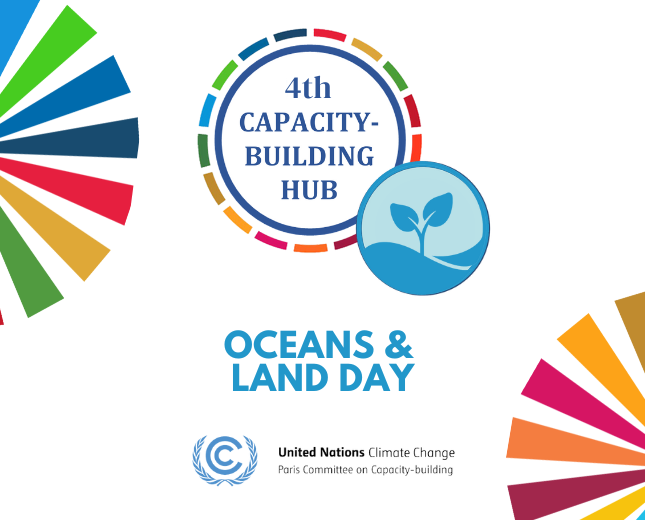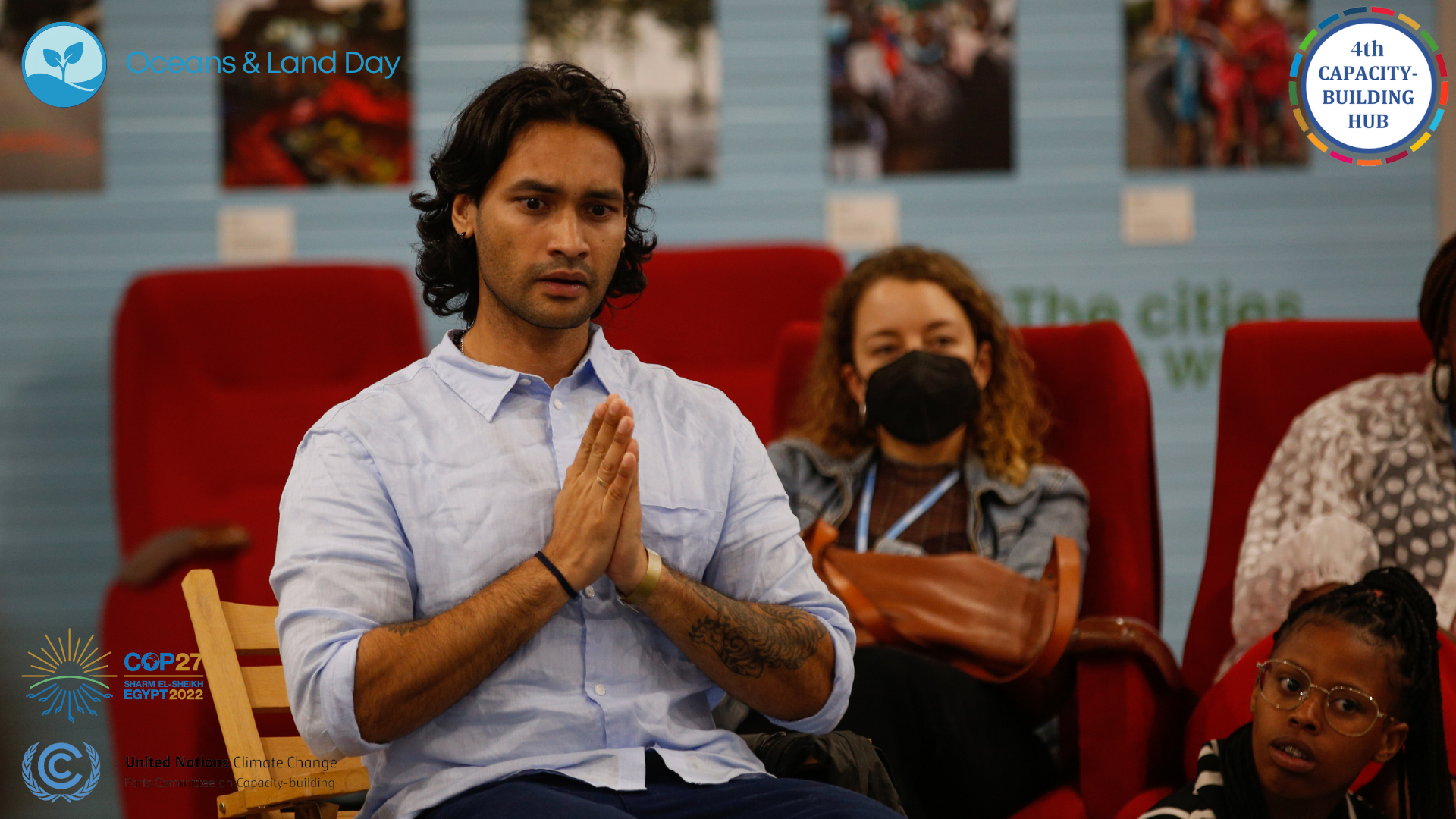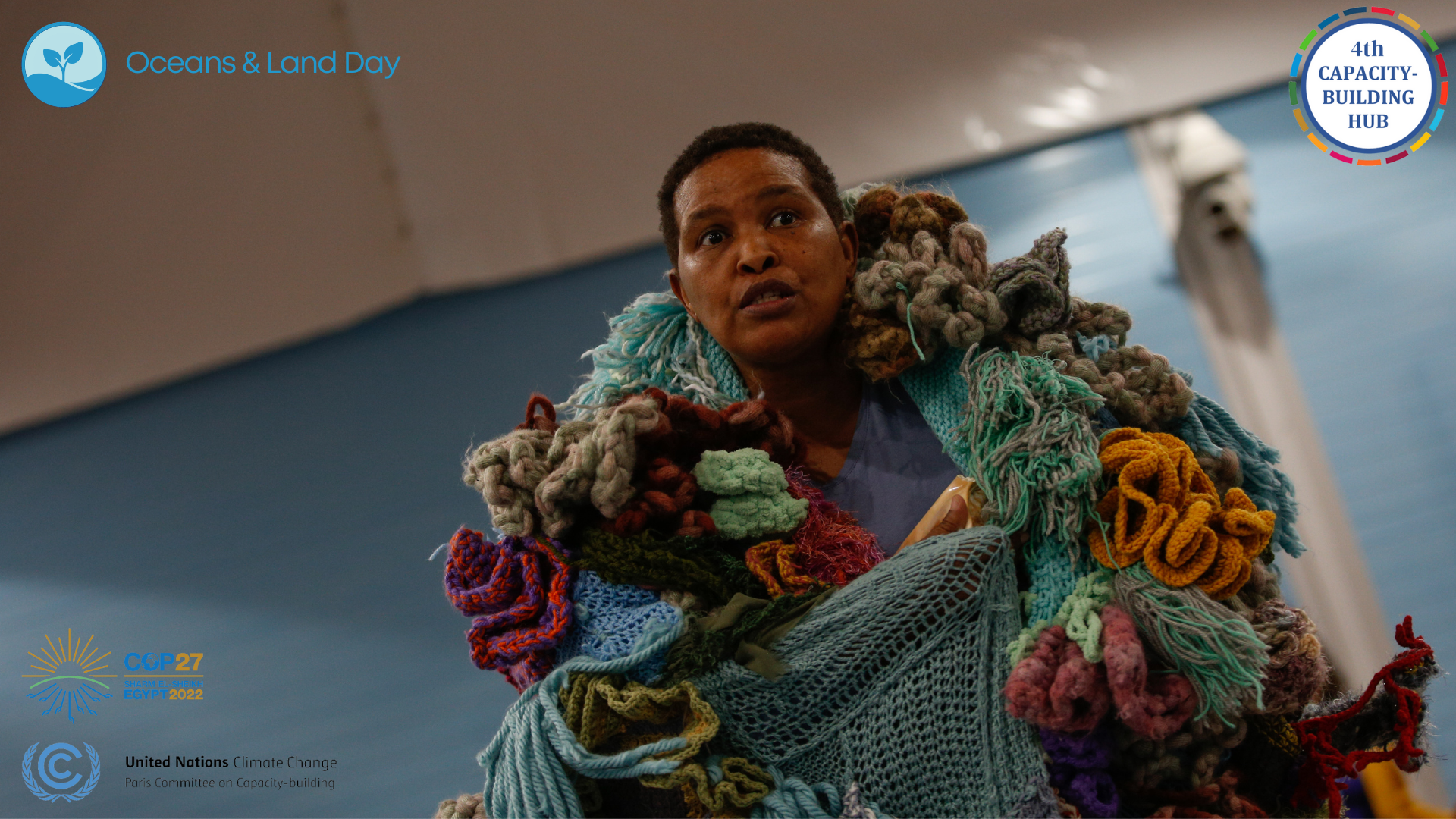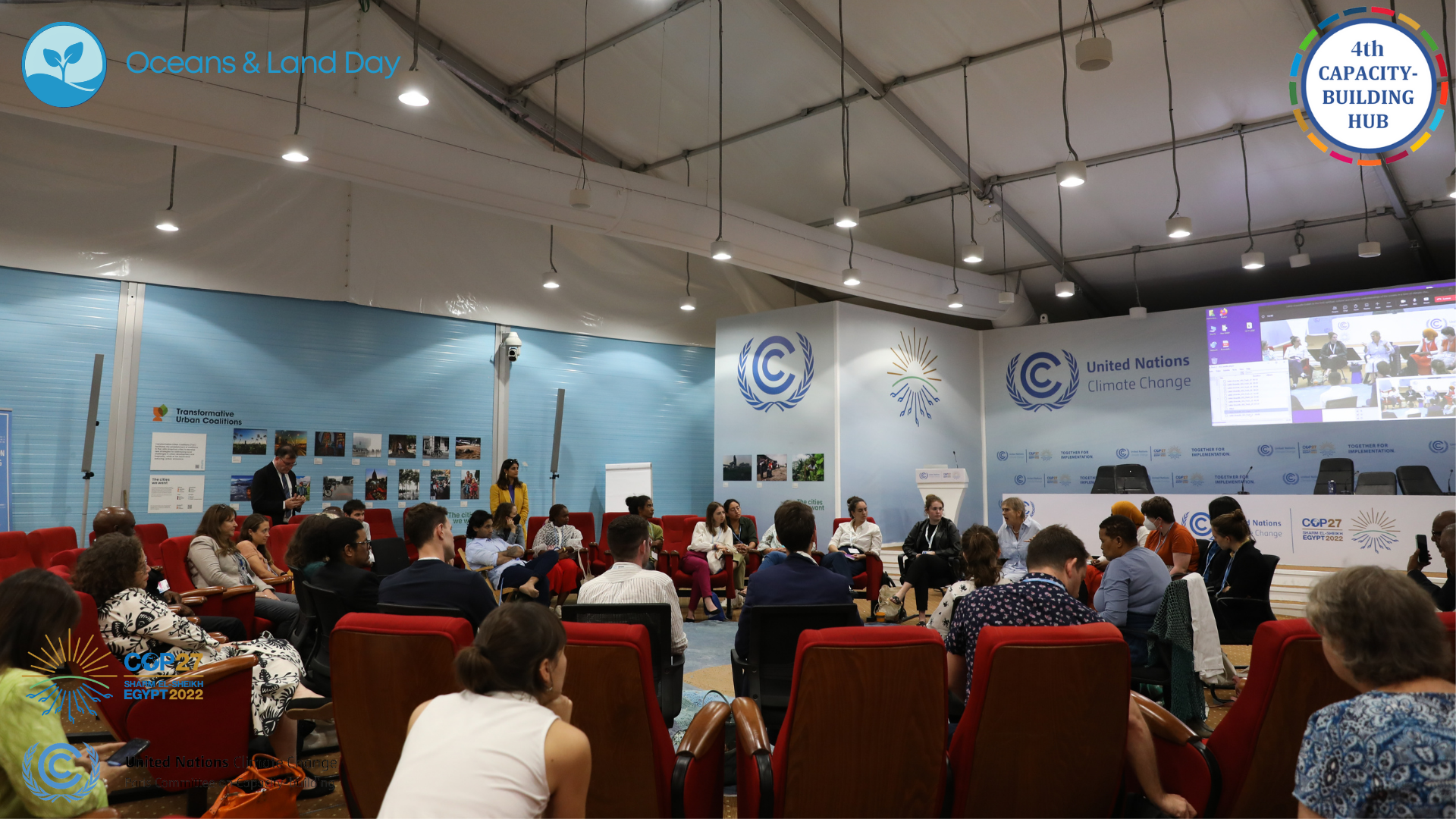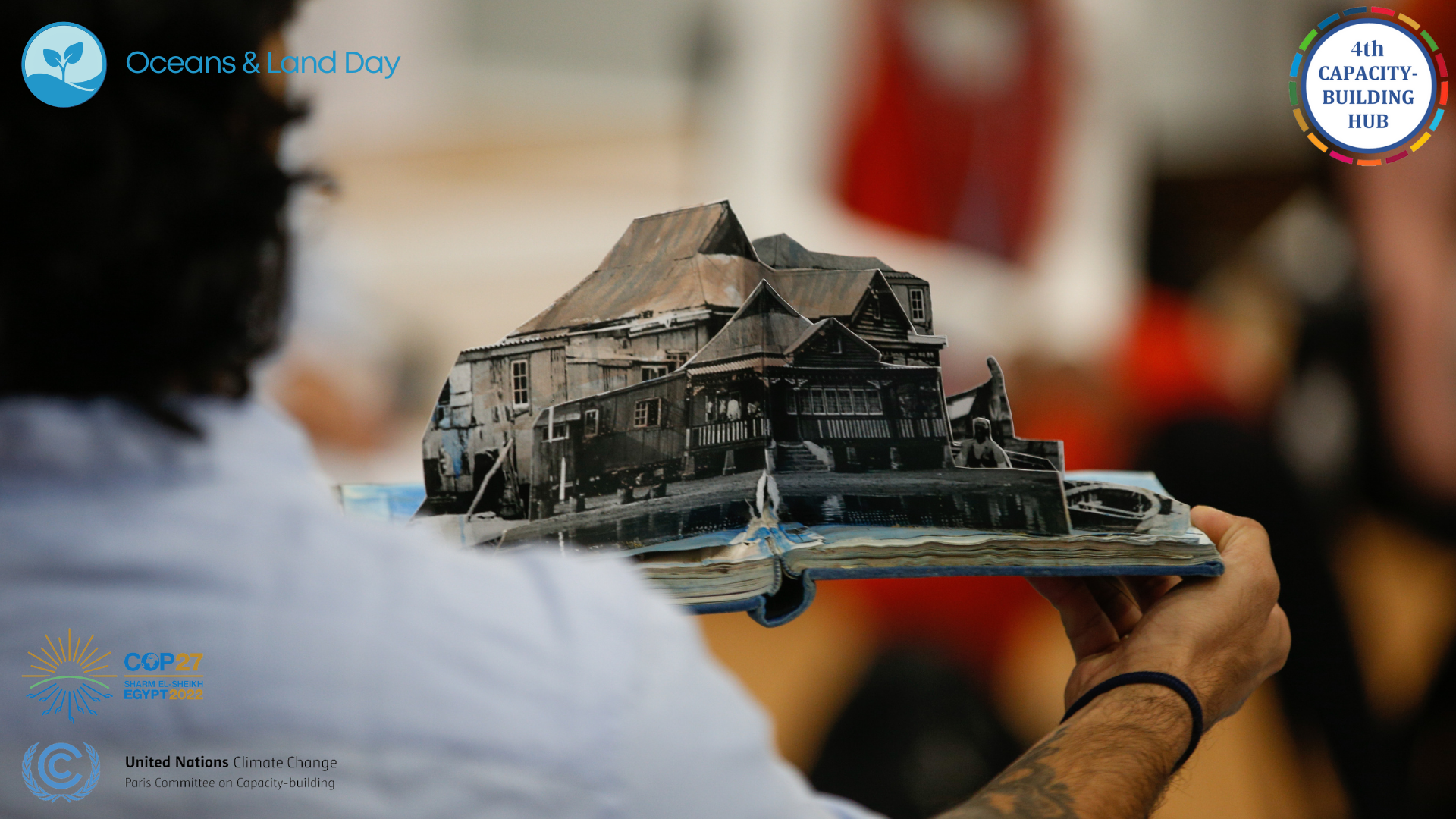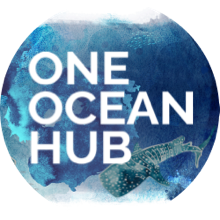Event Recording
Organizers
in collaboration with
Background
The One Ocean Hub is an international programme of research for sustainable development, working to promote fair and inclusive decision-making for a healthy ocean whereby people and planet flourish. It is funded by UK Research and Innovation (UKRI) through the Global Challenges Research Fund (GCRF), a key component in delivering the UK AID strategy.
Our work is focussed on South Africa, Namibia, Ghana, Fiji and Solomon Islands, with additional and cross-cutting international dimensions. It is led by the University of Strathclyde with 126 researchers, 18 project partner organisations, and 21 research partners including from Global South.
Lalela uLwandle is a participatory methodology developed by a South African collective called Empatheatre, who are part of the One Ocean Hub. Whilst grounded in the South African experience, the inter-generational stories of the sea performed in Lalela uLwandle resonate strongly with an international audience. The play expands our imaginations to listen to a multitude of voices on how we relate to the sea; including the voices of indigenous peoples, small-scale fishing communities, women, and youth. These voices that are often overlooked in ocean policy forums on climate change adaptation and blue economy initiatives. Experiences of exclusion from decision making processes, concerns around the exploitation of natural resources and marine protection, and questions around how to include cultural heritage in policy spaces are shared by many people across the planet. The play offers an invitation to a public conversation on how cultural, scientific and conservation knowledge may, if people learn to listen to each other carefully, find strategic alignment. Within the Empatheatre methodology, the performance is followed by a facilitated public-discussion with researchers, performers, decision-makers and the audience on the themes that emerge from the play. The theatre, story-telling and participatory nature of the event provides an inclusive audience engagement offer, as ocean and climate policy and governance issues are brought to life in ways that spark imagination, debate and active dialogue. It will enable members of the audience, including those who have never had the opportunity before, to experience a live theatre performance on ocean adaptation and resilience.
Objectives
- To showcase historical and contemporary obstacles to, and possibilities for, equitable decision making regarding the ocean.
- To demonstrate how Empatheatre’s enactment of a public dialogue demonstrates how diverse public voices may be included within decisions about the ocean.
- To initiate a public dialogue on how we may as a collective build sustainable and environmentally just governance and policy structures for a healthy, resilient ocean.
- To contribute to achieving long term environmental, social and economic recognition of the ‘importance of the intangible cultural heritage as a mainspring of cultural diversity and a guarantee of sustainable development’ as stipulated in the Convention for the Safeguarding of the Intangible Cultural Heritage
- To amplify the voices of marginalised groups that are dependent on the ocean, and most vulnerable to climate change. These voices, including indigenous peoples, small-scale fishers, women, and youth, that are often absent from decision making process.
- To offer an important learning flow from the Global South into a Global North forum to start a more inclusive conversation on ocean adaptation and resilience.
- To ensure local knowledge(s) enter into the hearts and minds of powerful decision makers at COP27.
Structure & Speakers
The event uses an Empatheatre research-based theatre performance (Lalela uLwandle) as an invitation to a facilitated discussion with audience participants on ocean governance, and how symbolic/religious/cultural and economic meanings humans construct in relation to the oceans must be taken into consideration in governance decision-making. The theatre performance draws on the oral history and archival researcher of people living on the east coast of South Africa (in KwaZulu-Natal). Whilst the stories in the performances are set in a very specific location, they find connections and resonance with many people living and working with the oceans. The theatre performance will be followed with post-performance discussions that will be facilitated by One Ocean Hub researchers who will provide important contextual information for the international COP 27 participants. The performance and post-performance discussions are set-up in a large, seated circle so that audience members have an intimate engaged listening experience.
| Time |
Segment and Speakers |
| 45 mins |
Performance |
| 15 mins |
Post-performance discussion
Moderators
- Dylan Kenneth McGarry, Director / Facilitator, Empatheatre, Rhodes University
- Neil Stewart Coppen, Director / Facilitator, Empatheatre
- Marí Stimie, Production manager, Empatheatre
- Cleo Droomer, Stage Manager, Empatheatre
Speakers
- Alison Mary Cassels, Actor / Facilitator, Empatheatre
- Rory Booth, Actor / Facilitator, Empatheatre
- Phumelephi Mthombeni, Actor / Facilitator, Empatheatre
|
Key Outcomes
- We all have a cultural, spiritual relationship with the ocean. But many of us have been disconnected from the sea.
- The sea has stories and is showing us the way to respond to the climate crisis and we need to listen.
- Everyone must be included when decisions are made on the ocean.
- We need to include and listen to the voices of Indigenous peoples, small-scale fishing communities, women, and youth to ensure integrated and fair ocean-climate actions.
- We need to look beyond natural sciences and include arts and other branches of knowledges to co-develop ocean-climate action.
- Arts-based methods allow us to understand and appreciate the role of indigenous knowledge in climate-action.
- Cultural heritage provides necessary insights for integrated ocean-climate action.
- Empatheatre nourishes learning through curiosity and wonder which gives hope for inclusive climate action.
Empatheatre (Short Documentary)
